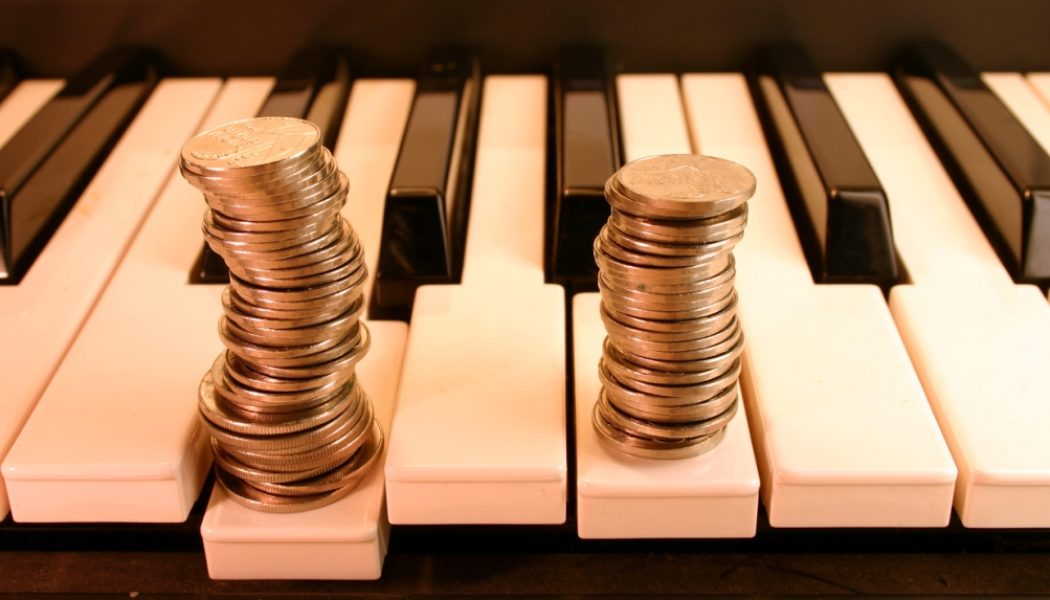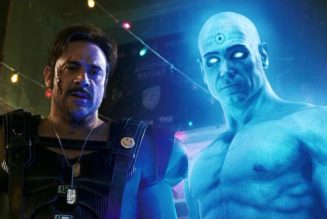
The RIAA and the three major record labels have filed a motion with the Copyright Royalty Board asking to limit the scope of a recent ruling to reconsider the long-standing 9.1 cent mechanical royalty rate on physical and download format sales.
The motion, filed April 5, seeks to confirm that when the CRB rejected a settlement between the labels and the National Music Publishers’ Association to keep mechanical rates frozen at 9.1 cents for the 2023-2027 term that it only applied to the music of George Johnson, the independent songwriter who objected to the agreement. It also requests that the CRB extend the response period to 60 days, instead of requiring participants in the proceeding to respond by April 22.
But RIAA CEO/chairman Mitch Glazier tells Billboard the intent for the filing is to take care of a procedural matter. By buying more time, it will allow participants to engage in settlement talks and avoid millions of dollars in litigation. Otherwise, participants would have less than three weeks to prepare to litigate a rate proceeding or come up with a settlement.
The RIAA joint filing — which includes Sony Music Entertainment, UMG Recordings Inc. and Warner Music Group — quotes the 801 (B) regulations noting that it authorizes the CRB judges to decline to adopt a settlement only for “CRB participants that are not parties to the agreement.”
Despite Glazier’s explanation, the filing nevertheless states that the RIAA and the major labels are arguing that the CRB confirm that 9.1 song rate settlement for the subpart B configurations — vinyl, CDs, downloads and other physical music formats — is still in effect for everyone else—all labels, all publishers and all songwriters. According to the RIAA filing, all other songwriters forfeited their right to have a say in CRB rate decisions when “they chose to sit out” the proceedings. So, the joint filing continues, those songwriters “will have to live with the outcome of that proceeding, whatever it is.”
Glazier, however, says that he has no control who participates in the CRB proceedings — it has its own process that makes those decisions — he does have a say who participates in the negotiations for a new rate settlement and wants to include other independent songwriting groups, publishers and labels. He wants their point of view to inform negotiations, he says. But in order to have those discussion, it will take more time than the CRB currently would allow, thus the motion to delay responding to the judges on how adjudication should move forward.
The 9.1 cent mechanical royalty rate has been in effect since 2006, despite the fact that cost of living in the U.S. has increased 31.9% since 2006 in the U.S., according to the references the CRB judges made in its March 30 ruling that threw out the settlement. If the rate holds, it would remain until 2027 under the Phonorecords IV rate proceeding, meaning songwriters would not receive a pay increase on sales in over two decades.
The RIAA’s interpretation of the CRB Judges ruling on the settlement, as stated in its motion, belies comments by NMPA executives and one of the major music publishers applauding efforts by songwriters to get a higher rate for the mechanical. But in addition to providing more time to allow for settlement talks, the major labels motion say that the judges need to clarify what its ruling on the settlement actually means.
As part of the RIAA’s motion, the filing asked the CRB judges to removed its April 22 deadline for filing rebuttals and instead provide for 60 days from the March 30, 2020 withdrawal of the CRB filing. Moreover, the very act of including a request in the motion for clarification on whether the ruling should apply to everybody or just Johnson also by itself plays into the bid for more time, other sources say.
The NMPA issued a statement on March 30 when after CRB judges rejected the rate settlement, saying, “We appreciate the grassroots efforts of songwriter advocates across the country and we stand with those who are pushing for more equitable songwriter payments.” The organization, however, declined to comment for this story.
The NSAI, who endorsed the rate settlement to keep the rate frozen at 9.1 cents for five more years, didn’t immediately respond to a request for comment.
Sources say that the NMPA and NSAI signed onto the settlement because they didn’t want to litigate on two fronts. Instead they decided to concentrate on the streaming rates, which provide about $1.8 billion in performance and mechanical royalties, by Billboard estimates — compared to about $130 million in mechanicals that physical and download sales provide.
The news on the RIAA joint motion filing was first reported by Music Business Worldwide.
The RIAA joint record companies filing was submitted by RIAA senior vp of legal and regulatory affairs Susan Chertkof, chief legal office Kenneth Doroshow, and senior vp of litigation Jared Freedman.
[flexi-common-toolbar] [flexi-form class=”flexi_form_style” title=”Submit to Flexi” name=”my_form” ajax=”true”][flexi-form-tag type=”post_title” class=”fl-input” title=”Title” value=”” required=”true”][flexi-form-tag type=”category” title=”Select category”][flexi-form-tag type=”tag” title=”Insert tag”][flexi-form-tag type=”article” class=”fl-textarea” title=”Description” ][flexi-form-tag type=”file” title=”Select file” required=”true”][flexi-form-tag type=”submit” name=”submit” value=”Submit Now”] [/flexi-form]










Tagged: business, CRB, entertainment blog, mechanical royalties, music blog, Publishing